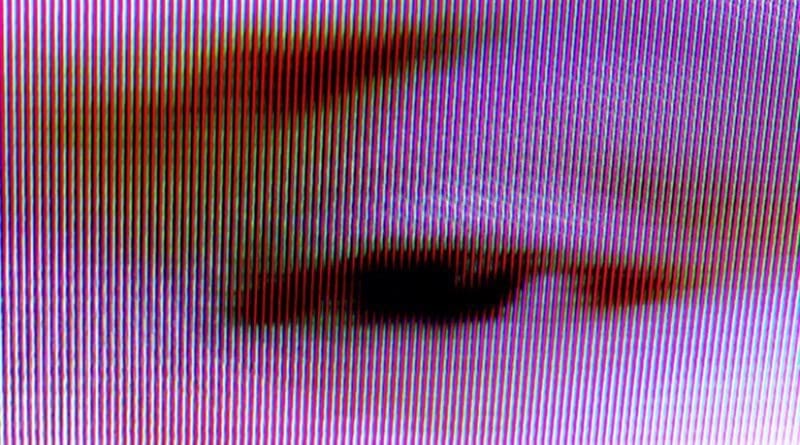Iran: No CyberSpace For Dissenting Voices As Tehran Takes ‘Orwellian Approach’ To Muffle Critics – Analysis
By RFE RL
By Golnaz Esfandiari*
(RFE/RL) — Iran has intensified its efforts to silence dissenting voices on cyberspace, where many Iranians discuss issues deemed by the Islamic establishment as sensitive.
The new round of state pressure comes several months after security forces brutally suppressed dissent in the streets of dozens of cities, killing hundreds of people.
In recent days, several journalists, activists, artists, and others with large social-media followings have been told to remove some of their posts and issue public corrections or apologies.
Criticism of harsh prison sentences for eight environmentalists convicted of espionage last year, as well as of the January downing of a Ukrainian passenger plane that killed all 176 people on board and the Islamic Revolutionary Guards Corps’ (IRGC) delayed admission of guilt, are some of the main issues that have prompted action by security officials.
The pressure appears to be aimed at promoting a state narrative to a highly skeptical public that has been angered by the jailing of those environmentalists and by what is seen as a lack of accountability for the disastrous shooting down of the plane, which led to street protests.
The powerful IRGC took responsibility three days after the crash while blaming it on “human error” amid heightened tensions with the United States over the assassination of IRGC senior commander Qasem Soleimani.
Iran said several people have been arrested and that an investigation was launched. Yet no senior IRGC official has resigned over the tragedy, which killed dozens of Iranians.
“[Authorities] are taking an Orwellian approach to ensure that only their official explanation of the events exists in this space,” says Tara Sepehrifar, Human Rights Watch researcher on Iran.
“The reality is that the skepticism in the authorities’ narrative is rooted in their conduct in a particular lack of accountability and this only further delegitimizes their position in the eyes of their skeptic audience,” she told RFE/RL.
At least one lawyer and three journalists have taken to Twitter in recent days to announce that they respect the court’s decision to jail the environmentalists, with one apologizing for past retweets that were critical of the verdict.
A journalist in Tehran who did not want to be named told RFE/RL that security officials reportedly called media staff and others and told them to remove online posts that they said were against national security — or face arrest.
“It seems that this is a new way to make people repent; before they did it on [state] television, now they’re expanding it to social media,” the journalist said, referring to confessions by critics aired on state television that, according to former detainees, are extracted under duress.
The assault is believed to be led by the intelligence branch of the IRGC, which arrested eight members of the Persian Wildlife Heritage Foundation — including Iranian-American Morad Tahbaz — in early 2018 on spying charges.
Many have questioned the imprisonment in late January 2018 of the environmentalists, including the director of the Persian Wildlife Heritage Foundation, Kavous Seyed Emami, a well-respected Iranian-Canadian university professor. Seyed Emami died in detention days later under unclear circumstances.
Authorities said he committed suicide, but that claim was questioned by his friends and relatives.
The head of Iran’s Environment Department, Isa Kalantari, said in 2018 that a panel had concluded that there was no evidence the environmentalists were spies.
Yet those who have spoken against their imprisonment appear to have been pressured to publicly recant their criticism, including well-respected journalist Mojgan Jamshidi, who covers environmental issues.
“If, after the issuing of the court’s ruling in 2019, I had a tweet or retweet that created the impression of disrespect, I am issuing a correction that I respect the court’s decision,” Jamshidi said on Twitter earlier this week.
Her tweet was retweeted by another journalist, Zeinab Rahimi, who added that “silence is full of unspoken words.”
Several artists have also suggested that Tehran is tightening its grip on social media, including the highly popular Instagram, which is the only unfiltered platform in the Islamic republic.
Actress Parastoo Salehi said on Instagram on June 8 that she had been summoned by police and was later released on bail for attending a protest over the IRGC’s downing of the passenger plane, as well as her social-media posts.
“I still can’t believe that raising criticism, to protest, and making demands is a crime,” she wrote on Instagram to her 1.8 million followers, adding that from now on she will remain silent “out of respect for my mother’s white hair.”
Actor Arzhang Amirfazli said on Instagram on June 6 that “regulations in state television and society are gradually being applied to cyberspace.”
“Because I’m worried about you, I’m forced to close the comment option under the posts,” Amirfazli added in a post to his 1.1 million followers.
Additionally, at least two volleyball players on the Iranian national team have removed angry posts from Instagram about the downing of the Ukrainian airliner without offering any explanation.
One had accused authorities of “incompetence.”
- Golnaz Esfandiari is a senior correspondent with RFE/RL.

